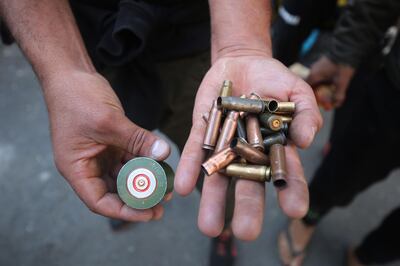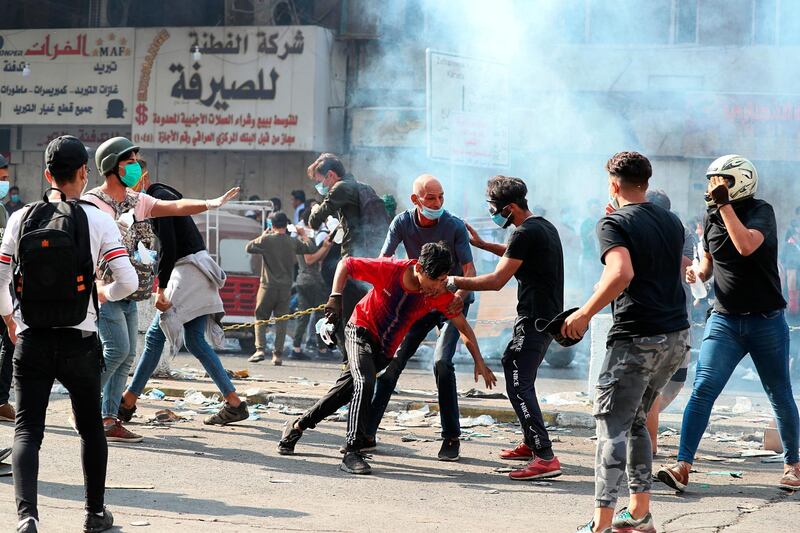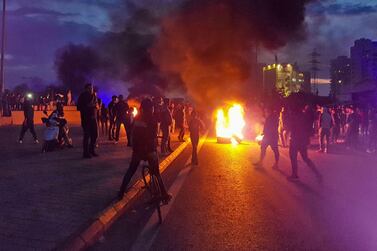A third anti-government activist has been murdered in Iraq in less than 10 days, police said on Wednesday.
Demonstrators and journalists have complained of increasing intimidation in a country where pro-Iranian armed groups integrated into the security forces have growing influence.
The body Ali Al Lami, 49, was found on Tuesday with gunshot wounds to the head, his friends said. They said he arrived in Baghdad days earlier to join the protests.
A police source said the attackers had used silencers and forensic experts said Al Lami, a father of five, had been shot three times.
"It was the militias of a corrupt government that killed him," his close friend Tayssir Al Atabi said.
Iraq's capital and its south have been gripped by more than two months of anti-government demonstrations, in which more than 450 people have been killed and 25,000 wounded.
Despite threats from government officials, protesters returned to Baghdad and the south again on Wednesday calling for the fall of the regime.
Officials said on Wednesday that 31 protesters were wounded after security forces fired tear gas to disperse them from Wathba Square, in the city centre.

The UN urged Iraqi authorities to hold accountable those responsible for the murders and abductions of activists and protesters.
"Groups referred to as 'militia', 'unknown third parties', 'armed entities', 'outlaws' and 'spoilers' are responsible for the deliberate killings and abductions of demonstrators," said a UN report released on Wednesday.
The report said “credible information” indicated that activists and journalists were being targeted for arrest by Iraqi security forces and “groups described as ‘militia.”
At least five high-profile activists have recently gone missing, the report said.
Since October 1, demonstrators in Baghdad and southern cities have disappeared almost daily, with authorities failing to identify the perpetrators.
In most cases, the protesters are taken from near their homes as they return from rallies.
Al Lami had left his southern hometown of Kut days earlier to protest with his children in Baghdad, and had called on social media for protesters to march peacefully.
He is the third protester to be killed since December 2.
Last week, the body of a protester, 19, was dumped outside her home in Baghdad.
On Monday, hundreds of Iraqis gathered to mourn the prominent activist Fahem Al Tai, 53, who was shot dead by a gunman riding on the back of a motorbike in Karbala on Sunday.
Hashed Al Shaabi, a network of militias integrated into state security, has come under increased scrutiny by protesters.
Founded in 2014 to fight ISIS, the Hashed is made up of factions backed by Iran.
It initially supported the government over protests but switched sides, although demonstrators fear Hashed fighters' presence at rallies could derail their anti-government movement.
After protesters in Baghdad were attacked over the weekend, leaving 24 dead, Hashed chief Faleh Al Fayyadh said his men would stay, in what demonstrators considered to be an admission of guilt.







